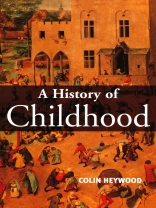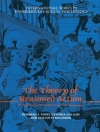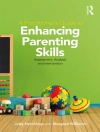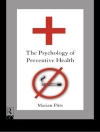In this lively and accessible book, Colin Heywood explores thechanging experiences and perceptions of childhood from the early Middle Ages to the beginning of the twentieth century. Heywoodexamines the different ways in which people have thought aboutchildhood as a stage of life, the relationships of children withtheir families and peers, and the experiences of young people atwork, in school and at the hands of various welfare institutions.The aim is to place the history of children and childhood firmly inits social and cultural context, without losing sight of the manyindividual experiences that have come down to us in diaries, autobiographies and oral testimonies.Heywood argues that there is a cruel paradox at the heart ofchildhood in the past. On the one hand, material conditions forchildren have generally improved in the West, however belatedly andunevenly, and they are now more valued than in the past. On theother hand, the business of preparing for adulthood has become morecomplicated in urban and industrial societies, as the young face abewildering array of choices and expectations.A History of Childhood will be an essential introductionto the subject for students of history, the social sciences andcultural studies.
Table of Content
Acknowledgements vi Introduction 1Part I: Changing Conceptions of Childhood 91 Conceptions of Childhood in the Middle Ages 112 The Quest for a Turning Point 193 Some Themes in the Cultural History of Childhood 32Part II: Growing up: Relations with Parents and Peers 414 Parent-Child Relations: The First Stages 435 Caring for Infants? 626 Parent-Child Relations during the Second Phase of Childhood 837 Relations with Parents and the Peer Group during the Third Phase of Childhood 103Part III: Children in a Wider World 1198 Children at Work 1219 Investing in the Future: Health and Education 145Conclusion 170Notes 172Select Bibliography 217Index 228
About the author
Colin Heywood is Senior Lecturer in Economic and Social History, University of Nottingham.












